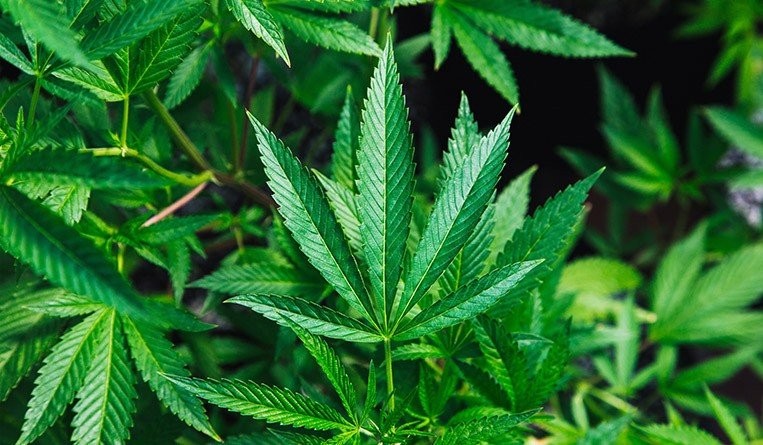The cost of hemp
30 November 2019

Marijuana, sometimes also known as cannabis, has long been considered an illegal substance in most countries. But with regions such as North America, parts of which have decriminalized the matter and created thriving businesses in the process, the use of marijuana has been getting a new facelift.
On December 20, 2018, US President Donald Trump signed into law the Agriculture Improvement Act of 2018 – the 2018 Farm Bill – which removed hemp from the Controlled Substances Act’s definition of marijuana. Also known as the Hemp Farming Act of 2018, the law states under Section 6 that “the term ‘marihuana’ does not include hemp, as defined in Section 297A of the Agricultural Marketing Act of 1946.” This only means that hemp – which is a strain of the cannabis plant – is no longer considered to be a part of the Controlled Substances Act at the federal level, provided that the hemp has less than 0.3 percent tetrahydrocannabinol, also known THC – and as the compound that results in marijuana users getting high.
Cannabis products made without THC are typically referred as CBD products: CBD oils and ointments, for example, are now allowed in the United States under the 2018 Farm Bill. Manufacturers of such products claim that CBD, which is short for cannabidiol, alleviates anxiety and inflammation without getting the user high.
In answer to this new law, the US Patent and Trademark Office, the federal agency that registers trademarks and grants patents, at first denied registration of CBD-infused products, but on May 2, 2019, changed tunes when it decided to face the backlog of registration applications awaiting examinations.
The new law has brought about much confusion and debate between consumers and the government. News sources widely reported earlier this year that Idaho state police officers seized 6701 pounds of industrial hemp being delivered from Oregon to Colorado, both states where marijuana use is legal, much less the use of CBD products derived from hemp.
Idaho state police called the bust the “biggest drug trafficking bust in state history.” The truck driver and company which shipped the product said it was hemp; tests later confirmed it contained less than 0.3 percent THC.
The complaint was eventually dropped, but police officers are advising motorists carrying hemp to avoid the Gem state. Still, there have been other news reports in which the cases of hundreds of people accused of marijuana possession have been dropped or put on hold, all thanks to the new hemp law. Also, the Hemp Industries Association (HIA) pursued its “Hemp is Legal” campaign, educating financial institutions and law enforcement that marijuana products are different from hemp, and that the latter can now be used for medicinal and recreational causes.
Meanwhile, many businesses and companies are excited by the new acceptance of cannabis. According to Lynell Tuffery Huria, a principal at AJ Park in Wellington, exporters from New Zealand of hemp products are eager about the opportunities now available in North America.
“This is supported by the fact that it is now easier to obtain intellectual property for these products in North America as well,” she said. “With this new development, we are actually encouraging our clients to seek intellectual property protection for hemp products in North America.”
Huria adds that for those who want to start their own CBD-infused business, they need to work with the government departments, such as New Zealand Trade and Enterprise, to assist with navigating these newfound rules and regulations. In terms of acquiring trademarks or patents, furthermore, she says that it has become easier.
“In some countries, it is becoming easier to acquire intellectual property protection for trademarks and patents used in relation to hemp or CBD products once the legislative controls around hemp products and/or CBD products are removed,” she said. “If those legislative controls remain in place, it continues to be difficult to get the necessary IP protections.”
Aside from the United States and New Zealand, the use of marijuana in some parts of Australia, particularly that of recreational purposes, has been legalized. Hemp, specifically, has been used in Australia for over a year now – and these products are being sold in supermarkets – but more has yet to be done in terms of educating the public. So far, there are no other Asia-Pacific regions that are reducing the legislative controls around the sale of hemp and CBD products.
So what is in store for hemp and CBD products in the future, around the world?
“It is likely we will see the legislative controls around the sale of CBD products become more lenient around the world, as a means to increase tax revenue and to reduce use and dependence on other prohibited drugs,” said Huria. “I think it will become more and more difficult to navigate the various legislative regimes, adopted by individual countries, in the future, much in the same way that clients have to navigate the different pharmaceutical, cosmetic, and other substances legislative frameworks around the world.”
Excel V. Dyquiangco






